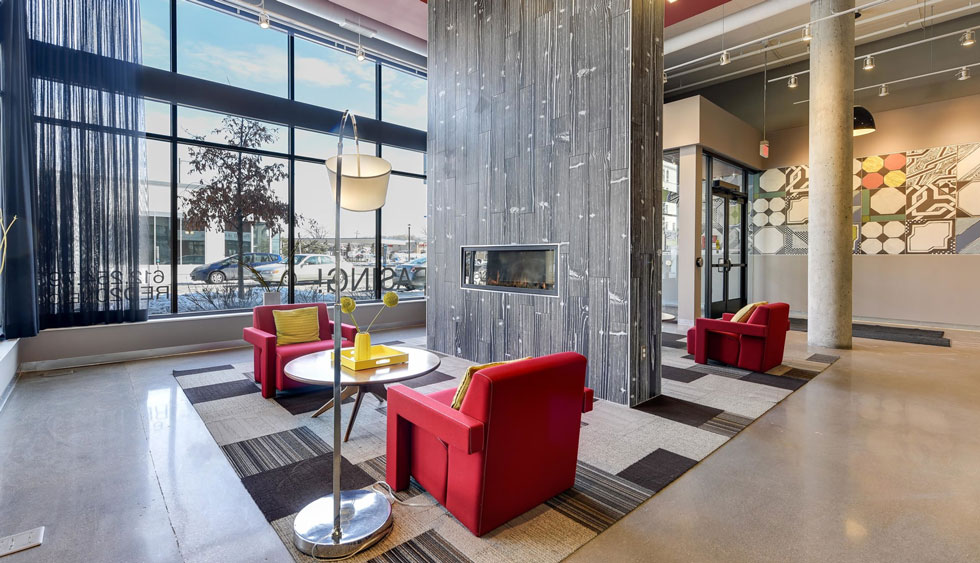Centerspace (NYSE: CSR) has come a long way in the past 52 years, but with a vision to be the premier provider of apartment homes in vibrant communities across the Midwest, President and CEO Mark Decker Jr. still sees more work ahead.
Decker, who previously served as U.S. group head of real estate investment and corporate banking at BMO Capital Markets, joined the REIT in 2016 as chief investment officer before becoming CEO the following year.
Based in Minot, North Dakota, Centerspace’s forerunner, Investors Real Estate Trust (IRET), was formed in 1970 by Thomas Wentz Sr. “Tom attended Harvard Law School around the time REIT legislation was drafted and liked the idea of the structure,” Decker says. “We came out of the blocks as a REIT and since then have paid more than 200 quarterly dividends.”
Centerspace still retains many of the original investors from 52 years ago. “In one of my first shareholder updates in Minot in 2016, I met shareholder number one, a gentleman named Dan Feist,” Decker recalls. “His advice, ‘don’t do stupid deals,’ was something that Warren Buffet couldn’t have stated more clearly.”
The company’s early days focused on North Dakota assets before diversifying geographically and by property type during its ‘middle years.’ At one point, the REIT had 250 properties in 14 markets across six types of real estate: multifamily, suburban office, industrial, retail, medical office, and senior housing.
“Our balance sheet was very much like a private operator where all assets were mortgaged,” Decker says. “We had a lot of net worth but not a lot of liquidity. Our markets, balance sheet, and diversity were not leading to great results.”
Customer Centric
Tim Mihalick, Decker’s predecessor as CEO, began the process of refocusing the business and when Decker took over as CEO in 2017 the company transitioned to 100% multifamily.
“With this focus on housing, we have reorganized our business around our residents and the resident experience and our team, who we rely upon every day to make that happen,” Decker says. “Our simple philosophy is that if we take care of our residents and team, putting them at the center of what we do, great things will happen with the business.”
Decker believes that by owning properties in great locations, and delivering “simplicity, community, and service to our residents with a team that is happy, empowered, and armed with the tools to do their work, we will have a spectacular business. We are on that path but have a long way to go to deliver that last sentence as we envision it.”
When considering geography, Centerspace reviews factors like available jobs, local outdoor amenities, cultural experiences, and more. While many places can meet that criteria, specifically the company is focused on Minneapolis and Denver, and more broadly the upper Midwest and Mountain West—greater Minnesota, the Dakotas, Nebraska, and Montana.
“Minneapolis and Denver have been our focus for the last four years and have gone from the low teens to more than 50% of our cash flow,” Decker says. He adds that Centerspace is working to add Nashville to the mix, but the popularity of markets outside the main metropolitan centers as a result of the pandemic has made that particular move hard. Centerspace still believes in Nashville long term, however, and expects to get there one day.
Pandemic Deals
During the pandemic, Centerspace has been able to demonstrate its successful strategy by focusing on fundamentals.
“Of the dozen or so public apartment companies, only a couple grew same-store operating cash flow and funds from operations (FFO),” Decker says. “I’m enormously proud that we were one of them. That’s a testament to our team’s focus on taking care of our residents and each other during this crazy time, and a reflection of our strong capital allocation and balance sheet management.”
In the last 12 months, the REIT has been very active. While Decker characterizes Centerspace as a “market buyer,” some of the most interesting things the company does involve problem solving and building a win-win scenario using the REIT structure.
Two recent portfolio deals in Minnesota demonstrate that. In one, the company acquired 2,696 apartment units from KMS in September 2021 for $323.8 million; and the other, a nearly 200-unit portfolio purchase for $68.1 million that closed in December.
In these transactions, the sellers contributed their assets and took equity in the form of operating partnership units on a tax-deferred basis, and in so doing became a partner, Decker says. “Most buyers can’t offer a liquid, highly divisible security. It’s a very elegant tool in the right situation. When we do things like this, we aren’t just competing on price. Whether it’s with a resident or a potential property acquisition we want to compete with service, energy, and solutions.”




